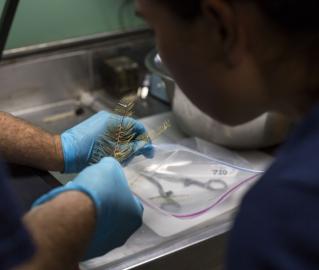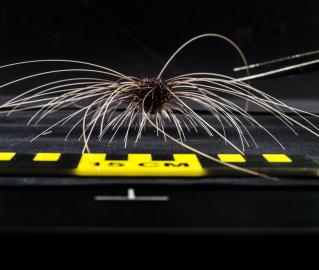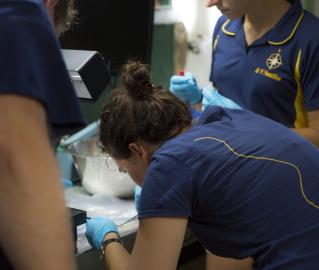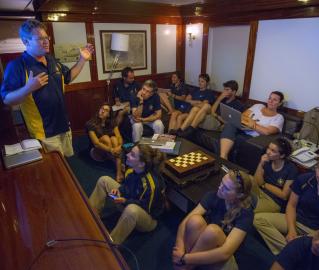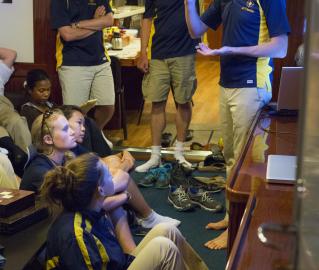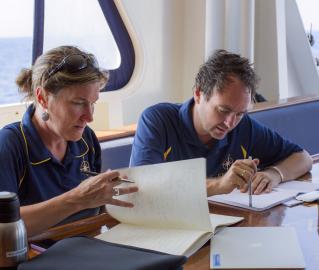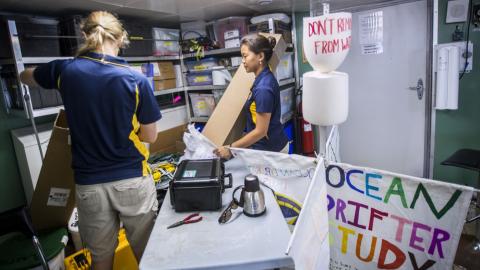Nautilus in Port: Get to Know Belize City
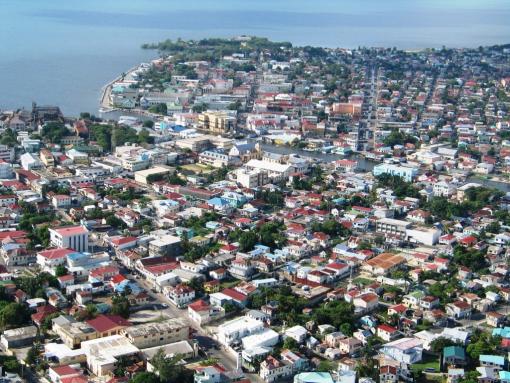
E/V Nautilus is rapidly approaching her first foreign port of call for the 2014 season - Belize City. This bustling Central American city will be the base for our Mesoamerican Reef cruise as we explore the biology of the deep areas of the world's second largest barrier reef. This isn't the first time in the region for several members of our team - Expedition Leader Mike Brennan has spent several years in the northern part of the country working on excavations of Maya ruins.
Speaking of the Maya, the history of Belize city begins with them. Archeologists have established that they lived in the Belize region since at least the 2nd century B.C.E., and the peninsula that is home to the city was formerly the site of a Maya fishing village called Holzuz. Once the British arrived in the 1600s they established what was then called "Belize Town." It was always a port city: logs would be shipped there from sites inland over the river and loaded onto ships to return to Europe. It was the center of British control in the region, and soon became the capital of the colony, then called "British Honduras."

Like another Nautilus port of call, Belize City has a bit of a pirate history. They used an island right off its coast, St. Georges Caye, as a base of operations to plunder shipping in the region. That island would later become famous as the site of the 1798 naval battle that cemented British control in the region through their defeat of an invading Spanish force from Mexico. The date of the battle, September 10th, is now a national holiday in Belize.
The history of the city has been marked by disaster. It experienced major fires in 1856 and 1918, followed up by a 1931 Hurricane that took out much of the city's infrastructure and killed 2,000 of its citizens. It was hit again in 1961 by Hurricane Hattie and in 2010 by Hurricane Richard.
The British Empire held on to Belize for quite a while - it didn't gain full independence until 1981. That explains why its official language is still English, although Spanish and Belizan Creole can be frequently heard throughout the city. Belize City may no longer be the capitol of the country, but it is still a major cultural center and the Corps of Exploration are looking forward to making this historic city our next port of call.

Mesoamerican Reef
The deep waters around and off the coasts of the Belizean cayes and atolls are among the least studied areas of the Caribbean Sea. The 2014 Nautilus cruise to the western Caribbean will conduct seafloor mapping and ROV exploration of the areas around and offshore the cayes and atolls of the Belize Barrier Reef, including potential mud volcanoes off Turneffe and Lighthouse atolls.
